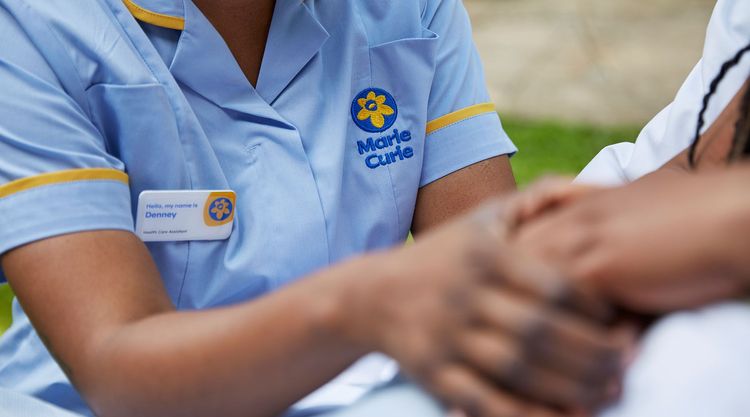Using artificial intelligence to address health inequalities in identifying people with palliative and end of life care needs: The NHS unscheduled care geriatric end of life screening tool (NU-GEST)
Marie Curie Research Grant Scheme
Duration: 24 months
Duration: 24 months
Researchers
Dr Sarah Mills
Lead Investigator
University of St Andrews
Watch: Using artificial intelligence to address health inequalitiesWatch: Using artificial intelligence to address health inequalities
Lay abstract
We have a responsibility to make sure that everyone who needs palliative care can access it. Access currently isn’t equal. Factors linked with unequal access include where people live, their illnesses, finances, ethnic background, sexual orientation and religion. In order to make sure that everyone is offered equal access to palliative care, we must improve how we can tell which people are nearing the end of life.
We will develop a digital tool to identify which people are nearing the end of life.
Most people in Scotland use unscheduled care (emergency department and general practice out of hours) when they are in their last year of life. An American research team have used machine learning to develop a predictive tool that can identify which people are at risk of dying in the six months after they attend unscheduled care.
We will develop a similar tool for the NHS using Scottish health data. Our new tool’s performance will be tested using a range of approaches. We will test how well it does at predicting risk of death, and compare it to other risk prediction tools. Importantly, we will also explore how the tool can be used in practice and how the public feels about it.
Our new tool will allow us to tell who is at high risk of deteriorating and dying in the six months after they attend unscheduled care. Once we know who the people at high risk are, we can explore ways of letting them and their regular healthcare team know that they are high risk of dying. This will give them time to make sure they are getting the best medical care possible. It will also mean that they can be offered access to palliative care. This new approach should make palliative care access more fair and equal for everyone.

